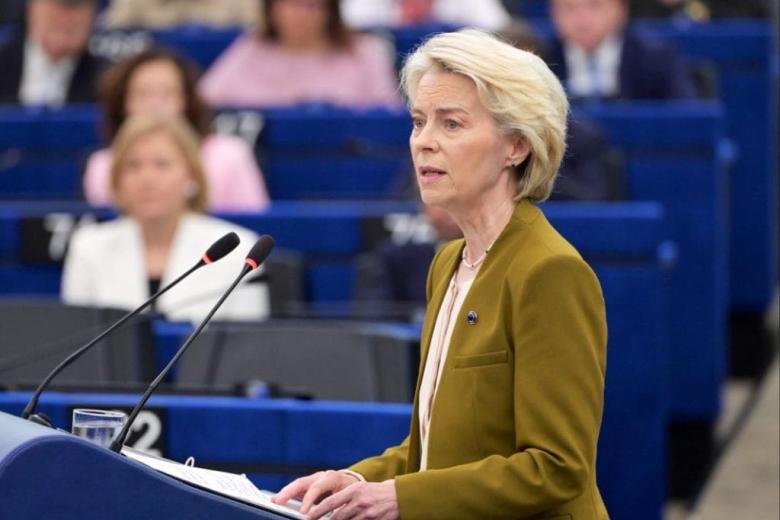What do three UM alumni, Silicon Valley and Mark Zuckerberg have in common?
Imagine being invited to Silicon Valley for three months to develop your innovative app. And being given $120,000 in pocket money, plus access to a network that can get Mark Zuckerberg on the phone tomorrow, if absolutely necessary. This year, three UM alumni got to enjoy all of the above. With their new app they are hoping to conquer the market for low-threshold psychological care for everyone.
Two alumni had a bright idea for an app …
A breakup, a minor car accident, exam stress. For many people, events like these can affect their everyday functioning, but are not quite serious enough to send them running to a psychologist. Even if they do want to see a psychologist, they first need a referral from a GP, then face long waiting lists. Things can surely be more efficient, thought psychologist Yoeri Dassen and a colleague four years after he graduated from UM. Friend and neuroscientist Christoph Lynen was working in the world of virtual reality (VR) and he, too, saw opportunities. Together the two UM alumni came up with an app that uses VR glasses to provide psychological techniques such as EMDR and mindfulness training.
… survived the selection process and called Mike
They took the plunge and approached one of the best startup advisers in the world. Dropbox, AirBnB, Stripe and Reddit all got their foot in the door with Y Combinator in the same way – it only works for a happy few. And they managed to get through the selection process. That was when they called Mike Verhiel, whom they had known since high school in Kerkrade. Verhiel studied economics at UM, had a great career at KPN and possessed the commercial skills the team was still lacking. “I didn’t have to think twice to say ‘yes’ and quit my job”, he recalls.
Life in Silicon Valley
In January the three of them left for Silicon Valley, California. What was it like? “Everything you’d imagine, but then twice as intense”, Verhiel says with a twinkle in his eye. “You’re doing everything at once. Expanding your network to raise funds, developing the product, working on the best product-marketing fit, setting up limited companies and holding companies for the future shareholder structure, and so on and so forth.” Once a week they got an hour with their mentors, who had themselves developed startups into companies worth millions. Their recurring question: okay, how are you going to increase this turnover by a factor of 10 within a week? Verhiel: “If you have a weekly growth of 10%, you’re doing well in that environment.”
In pursuit of their mission: affordable mental healthcare
The mind-set is quite different to the Dutch step-by-step approach. “There you work 24 hours a day if necessary. It’s no problem if you fail, but at least you’ve given everything. That fit perfectly with our own attitude to work. And besides, when you’re doing something you really believe in, it doesn’t feel like work. You just wake up every day with a mission: affordable mental healthcare for everyone in the world.”
Now for the investors …
At the end of the three months in Silicon Valley, the startups get the chance to pitch their company on ‘Demo Day’. Two minutes, in which you try to persuade investors to commit a few million dollars to the further development of your idea. “You can also postpone the pitch for three months, which we did. We wanted to make it more impressive first, increase our growth, so we’re going back in August.” The three are ultimately motivated not by the promise of big money if the app takes off. “We genuinely want to help as many people as possible. And the opportunities are endless. People with a spider phobia, stressed-out students, maybe even refugees or Israeli citizens after their military service.”
It can’t go wrong
The app is currently being used by U-center in Epen, a private clinic for psychological care. Dr Stefan Jongen, who obtained his PhD at the UM Faculty of Psychology and Neuroscience, will study the effects of the app there. Research in Silicon Valley using a 50 person test panel showed that the intensity of the participants’ emotional responses decreased significantly after a single 15 minute session with the app. Jongen hopes to conduct further research on patients and publish his findings. Meanwhile, Verhiel can no longer imagine himself in a ‘normal’ job. Nor does he need to. The three are sure of one thing: “This can’t go wrong”, Verhiel says.
Also read
-
“She’s painting a picture of European unity”: What von der Leyen’s State of the Union tells the world
Ursula von der Leyen’s latest State of the Union addressed a broad scope of topics – from the ‘usual suspects’ like defence and competitiveness to the resurfaced Green Deal, the housing crisis, workers’ rights, and the fight against poverty. It was met with mixed reactions from both her own party...

-
NUTRIM PhD Introduction days 29 and 30 October 2025
To kickstart your PhD journey with us, the NUTRIM PhD Council and Coordinators invite you to the NUTRIM Introduction Days.
-
Community of Practice on AI & Education: introducing faculty AI updates and contact points
On 10 September, the AI & Education Community of Practice met at EDLAB to start the new academic year. Six AI faculty representatives introduced themselves and shared updates on policies, workshops, and tools for staff and students. 1) Technology & security, 2) AI literacy and 3) educational quality...
